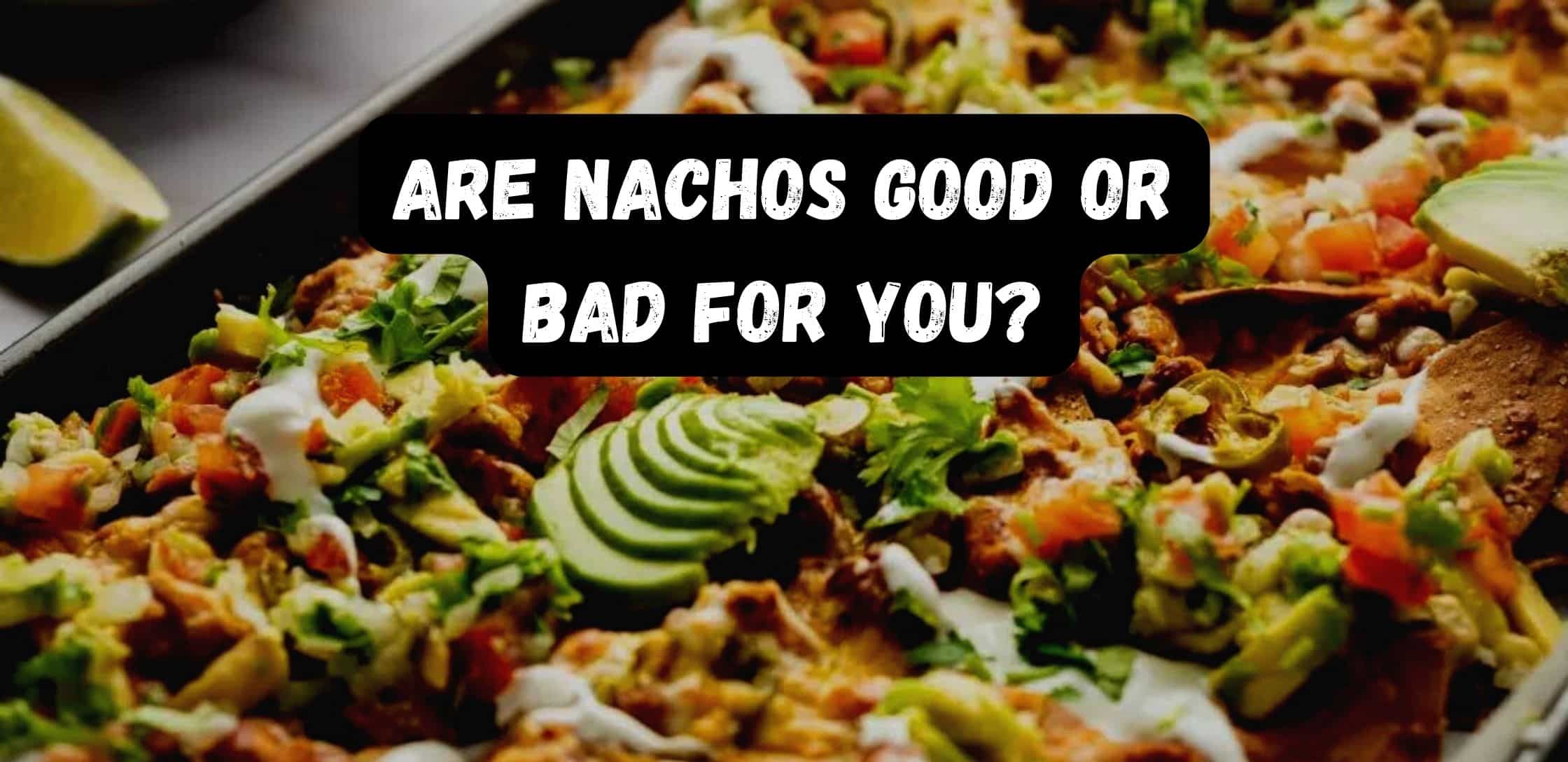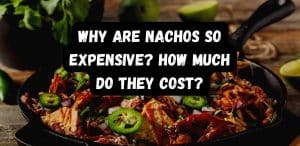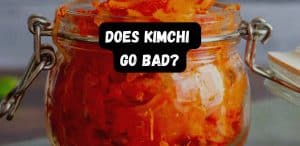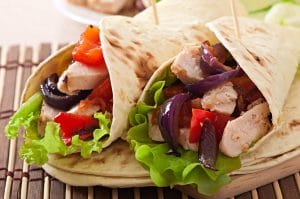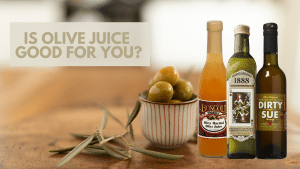Are Nachos Good Or Bad For You?
Important Note: When you buy through our links, we may earn a commission. As an Amazon Associate we earn from qualifying purchases. Content, pricing, offers and availability are subject to change at any time - more info.
Nachos hold to all the rules of America’s epicure comfort foods – they are fried, loaded with carbs, and drenched in gooey melted cheese. These tortilla chips loaded with toppings are a go-to snack (or meal) at sporting events, parties, or while lounging on the couch. However, amid forming healthier eating habits, you may be wondering if nachos are good or bad for you.
Nachos are high in calories, fat, and sodium, making them an unhealthy snack. In addition, nachos can increase blood pressure, the risk of heart disease, hypertension, and weight gain. So, it’s best to enjoy nachos in moderation. However, many nacho toppings can contribute to a healthier version.
Unfortunately, without precaution, some of the “American favorite” qualities can make nachos a nutritional nightmare. Here’s why nachos aren’t the healthiest combo to snack on, affecting our hearts, moods, energy levels, and waistlines.
Are Nachos Good Or Bad For You?
Nachos are generally not the healthiest snack or meal. This is because they are relatively high in calories, fat, and sodium. However, some of the fresh toppings can create a healthier version.
When referring to nachos, it’s essential to remember that nachos and tortilla chips are not synonymous. While tortilla chips are quintessentially the base and a critical ingredient for nachos, the defining element is cheese.
At their most basic, nachos are crunchy tortilla chips topped with cheese and popped into the broiled until the cheese melts.
Although the simplicity of this Tex-Mex snack food is enough to tickle your tastebuds, many people love adding a range of toppings, including meats, refried beans, salsa, cream cheese, queso, guacamole, jalapeños, lettuce, and anything else that comes to mind.
Nachos’ high calorie and sodium content can increase blood pressure and lead to serious health complications like heart disease and hypertension. In addition, nachos can contribute to weight gain. So, it’s best to enjoy them in moderation.
Tortilla Chips: Are They Healthy?
Tortilla chips are made using maize kernels, oil, lime, salt, and flavorings. The chips are cut before baked, fried, and seasoned.
According to nutritionvalue.org, a portion (28g or 1oz) of tortilla chips contain:
| Amount | Daily Value % | |
| Calories | 140 | |
| Total fat | 7g | 9% DV |
| Saturated fat | 3g | 15% DV |
| Sodium | 150mg | 7% DV |
| Total Carbs | 17g | 6% DV |
| Dietary Fiber | 1g | 4% DV |
| Protein | 2g | 4% DV |
| Calcium | 20mg | 2% DV |
| Iron | 0.4mg | 2% DV |
Although tortilla chips are mostly considered unhealthy, they aren’t a health hazard. Non-nutritive, processed foods like tortilla chips should make up a tiny amount of your daily calories.
When munching on tortilla chips, we can easily ignore the recommended serving suggestion, eating double (even triple) the amount. So, stick to single portions to prevent calories, fats, and sodium intake from adding up and harming your body.
Here’s the full scoop on tortilla chips:
Tortilla Chips: Sodium
In agreement with The American Heart Association, the ideal sodium intake ranges between 1,500mg and 2,300mg a day for most adults.
A bag of tortilla chips generally contains around 150mg of sodium, keeping it a healthy amount.
Sodium is an essential mineral that the body needs to function but fails to produce on its own. However, as stated by the Center for Disease Control and Prevention, excessive sodium may lead to high blood pressure and risk for heart problems.
A single serving of tortilla chips is safe to add to your diet if your total daily sodium intake does not exceed the 2,300mg recommended intake. Then, if you have a heart condition, ensure your sodium intake does not exceed 1,500mg of sodium per day.
Remember, over 70% of the sodium that Americans eat does not come from the salt shaker but is hidden in packaged and prepared foods or restaurant meals.
Therefore, avoid flavored tortilla chips and opt for unsalted or lightly salted chips to help limit your sodium intake.
Tortilla Chips: High In Fat and Calories
Fried tortilla chips are high in fat, calories, and acrylamide, according to PubMed.
The amount of fat in tortilla chips varies by brand, but 28g or 1oz of generic tortilla chips contains 7g of fat. However, according to Science Direct, tortilla chips are often sprayed with cooking oil to increase their fat content and enhance the flavor and texture.
Added trans fats are considered the worst fat type to consume. Unlike other dietary fats, trans fats raise “bad” cholesterol, lower “good” cholesterol, and trigger inflammation, per Harvard Health Publishing.
A diet filled with excessive trans fats increases the risk of heart and blood vessel disease. Therefore, avoid tortilla chip brands with trans fats (hydrogenated vegetable oils) in the ingredient list.
Tortilla chips are high in calories. Eating excessive amounts can cause weight gain, water retention, hypertension, and heart disease.
Fried tortilla chips often contain the chemical acrylamide, caused by the chemical reaction when cooked at high temperatures to attain a crispy texture. According to the American Cancer Society, acrylamide levels are unregulated by the FDA and can be carcinogenic (cancer-causing) to humans.
In recent years, tortilla chip manufacturers started creating more health-conscious products, including multigrain, gluten-free, whole-grain, grain-free, and low-sodium varieties. Instead of enjoying fried tortilla chips, The American Heart Association recommends opting for equally delicious baked tortilla chips.
Tortilla Chips: Benefits
Tortilla chips boast one or two benefits. A 28g or 1oz tortilla chip serving contains 2 grams of protein. In addition, while they aren’t a significant vitamin or mineral source, they offer a touch of calcium and iron.
According to Science Direct, long-term calcium deficiency significantly contributes to osteoporosis, also known as “brittle bone” disease. In addition, iron deficiency can result in iron deficiency anemia. So, while tortilla chips aren’t the best source of minerals, they provide up to 2% of our daily calcium and iron recommended intake.
While white, yellow, and blue tortilla chips share similar nutritional profiles, some blue corn varieties are slightly higher in protein and fiber.
Cheese: Is It Good Or Bad?
Cheese, glorious cheese!
Cheese is a plate of nachos’ crowning glory. Cheese is a whole food that is generally healthy if you don’t overdo your portions.
The nutrition profiles of cheese vary widely from one type to the next. So, we’re only going to cover those most often used while making nachos.
| Cheddar (28g) | Monterey Jack (28g) | Mozzarella (28g) | American Cheese (28g) | Queso Cheese (28g) | |
| Calories | 114 | 100 | 85 | 102 | 114 |
| Carbs | 1g | 1g | 0.7g | 1.3g | 0.8g |
| Fat | 9.4g | 8g | 6.3g | 8.6g | 9g |
| Protein | 6.4g | 6g | 6.3g | 5.1g | 5.1g |
| Calcium | 15% DV | 21% DV | 11% DV | 22% DV | 16% DV |
| Sodium | 8% DV | 7% DV | 6% DV | 20% DV | 9% DV |
The cheese melted over tortilla chips to make nachos is a high-calorie, high-fat indulgence.
According to the Harvard School of Public Health, cheese is nutrient-dense, serving as an excellent source of:
- Protein
- Fats
- Calcium
- Phosphorus
- Zinc
- Vitamins A and B12
Most cheese varieties are high in sodium. Salt is a vital ingredient to hold moisture and prevent bacterial overgrowth. However, the high sodium content can exert adverse health effects.
Cheese also contains high levels of saturated fat. According to The American Heart Association, the recommended intake of saturated fats is 5 to 6% of your daily calories. So, for example, someone eating a recommended 2,000-calorie diet should only consume 13 grams of saturated fat.
Unlike unhealthy trans fats from fried food, saturated fats are healthy when eaten in moderation. However, excessive cheese consumption can increase “bad” cholesterol levels. Plus, high amounts of saturated fat equals extra calories and weight gain.
However, according to a 2018 study, full-fat dietary cheese can positively affect cardiovascular health while offering anti-inflammatory properties. In addition, the calcium content may help protect your teeth from cavities.
Harvard School of Public Health suggests that cheese contains traces of linoleic acid that help protect the heart. In addition, full-fat dietary cheese can help lower the risk of type 2 diabetes.
That said, unhealthy dietary patterns like nachos drenched in cheese and topped with protein containing high saturated fats and sodium are likely to have adverse health effects regardless of the nutrients found in cheese.
The best way to keep your nachos healthy is to control fat and calorie content by using cheese with plenty of flavor like Pepper Jack or Sharp Cheddar in small servings.
Nachos Toppings: Proteins
The most common nachos’ protein toppings with their nutritional value include:
| Ground Beef (100g) | Ground Turkey (100g) | Chicken (100g) | Pulled Pork (100g) | Steak (100g) | Black Beans (100g) | Refried Beans (100g) | |
| Calories | 332 | 203 | 239 | 168 | 271 | 132 | 92 |
| Carbs | 0 | 0 | 0 | 19g | 0 | 24g | 15g |
| Fat | 30g | 10g | 14g | 4.4g | 19g | 0.5g | 1.2g |
| Protein | 14g | 27g | 27g | 13g | 25g | 8.9g | 5g |
| Sodium | 2% DV | 3% DV | 3% DV | 27% DV | 2% DV | 0% DV | 18% DV |
Fresh meat and legumes (beans) are valuable and high-quality protein sources. They can provide the following health benefits:
- Reduced appetite and increased metabolism
- Increased muscle mass
- Stronger bones
- Improved iron absorption
- Amino acids like Riboflavin, Niacin, and Thiamine
- A, B6, and B12 Vitamins
- Minerals including Iron, Zinc, Phosphorus, and Selenium
However, an observational study suggests that excessive meat consumption is linked to a higher risk of heart disease. Another study shows that eating red meat can be associated with type 2 diabetes. Then, a review of 39 studies linked high consumption of red and processed meats to increased body weight.
Black beans provide a dose of heart-healthy protein, fiber, and nutrients for your nachos.
A study found that black beans can increase healthy gut bacteria, improving insulin sensitivity and blood sugar management.
Another study suggests that black beans are jam-packed with antioxidants that help neutralize free radicals linked to chronic diseases. In addition, the beans have potential heart-protective, cancer-fighting, and type 2 diabetes benefits.
Legumes also have antinutrients, including lectins, tannins, and phytic acids, that can impair digestion and absorption of minerals.
Avoid using refried beans prepared in animal lard and opt for beans fried using olive or canola oil to reduce the cholesterol and fat content.
Nachos: Salsa, Pico de Gallo, Sour Cream, & Guacamole
Nachos typically include an assortment of sauces like salsa, pico de gallo, sour cream, or guacamole. Here’s the rundown on the nutrition of each dipping sauce:
| Salsa (100g) | Pico de Gallo (100g) | Sour Cream (100g) | Guacamole (100g) | |
| Calories | 36 | 31 | 193 | 167 |
| Carbs | 7g | 9g | 2.9g | 10g |
| Fats | 0.2g | 0 | 20g | 13g |
| Protein | 1.5g | 0 | 2.1g | 3.3g |
| Sodium | 17% DV | 19% DV | 3% DV | 19% DV |
Salsa
Salsa is the most popular condiment for nachos – and it turns out to be a nutritional powerhouse. Fresh salsa is your best bet to add a punch of flavor to nachos while delivering essential – and tasty – nutrients.
Salsa is low in calories and serves as an excellent shot of vitamin C, fiber, quercetin, lycopene, and potassium. Therefore, salsa can help stabilize blood sugar, burn fat, and protect against cancer and inflammation.
Pico de Gallo
Pico de gallo is a classic Mexican-inspired tomato dip that shares the same basic ingredients as red salsa. However, the preparation differs slightly.
Pico de gallo only uses raw ingredients, unlike the stewed or roasted tomatoes in salsa. In addition, pico de gallo is less wet and chunkier than salsa’s purée texture.
Pico de gallo is fresh, healthy, and low in calories. It boosts hydration, supports blood sugar stability, reduces inflammation, aids in weight loss, and promotes healthy blood pressure levels.
Sour Cream
Sour cream is a rich, creamy, and slightly tart condiment often used as a topping for nachos.
Sour cream is made by fermenting dairy milk cream with lactic acid bacteria. Therefore, some varieties contain probiotics and live microbes that offer benefits, including improved digestion and immune function.
Sour cream can support your health in several ways, including promoting the absorption of fat-soluble vitamins like vitamins A, D, E, and K.
Sour cream is low in carbs. However, a potential drawback is that it’s high in saturated fats, which can cause a spike in “bad” cholesterol if consumed in excess.
As we mentioned earlier, The American Heart Association recommends limiting saturated fat intake to 5 or 6% of your daily calories.
Guacamole (Avocado)
Nutritious, versatile, and downright delicious, avocados or “alligator pears” are the perfect topping for nachos.
Avocadoes are the star ingredient in guacamole. They are an excellent fiber source and boast tons of heart-friendly fats, few carbohydrates, and improved satiety.
Guacamole boasts an impressive amount of nutrients, including fiber, folate, potassium, copper, and vitamins B6, C, and E.
According to the USDA, potassium is considered a “nutrient of public health concern” for Americans as they commonly don’t consume enough of the mineral. However, half an avocado contains 345mg (7% DV) of potassium.
Nachos: Veggies
After selecting our proteins, cheese, and sauce for nachos, there’s room for a colorful array of veggies.
The list of potential vegetable toppings ends wherever your imagination runs dry. Some of the most popular options include:
- Lettuce: A powerful antioxidant and provides ample hydration
- Red or White Onion: Helps fight inflammation and reduce cholesterol levels.
- Chives: Chives are rich in flavonoids that help fight cancer, detox the body, and improve heart health
- Leeks: Leeks contain heart-healthy compounds that help reduce cholesterol, inflammation, blood clot formation, and blood pressure
- Olives: A powerful source of vitamins E and K
- Jalapeños: Jalapeños boast capsaicin and vitamins C and B6, which contribute to weight loss, fighting free radicals, and improved heart health
- Bell Peppers: Excellent source of vitamin C and fiber
- Tomatoes: The most significant dietary source of lycopene, the antioxidant linked to reduced heart disease and cancer risks
- Cilantro: Helps reduce inflammation and stabilize blood sugar levels.
The Final Verdict About Nachos
Nachos are a delicious snack relatively high in fat, calories, and sodium. However, you can transform it into a healthier version by choosing low-sodium tortilla chips, healthy toppings, and sauces.
Limit nachos to game nights and parties instead of incorporating them as a daily go-to snack (we know it’s hard).
